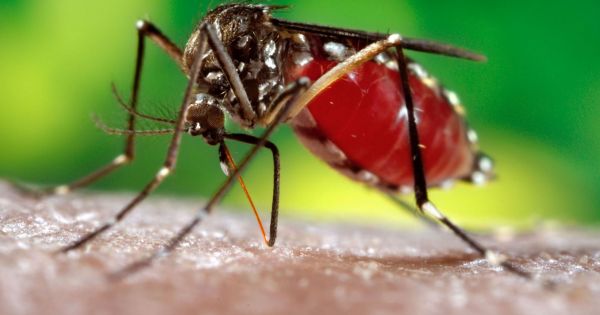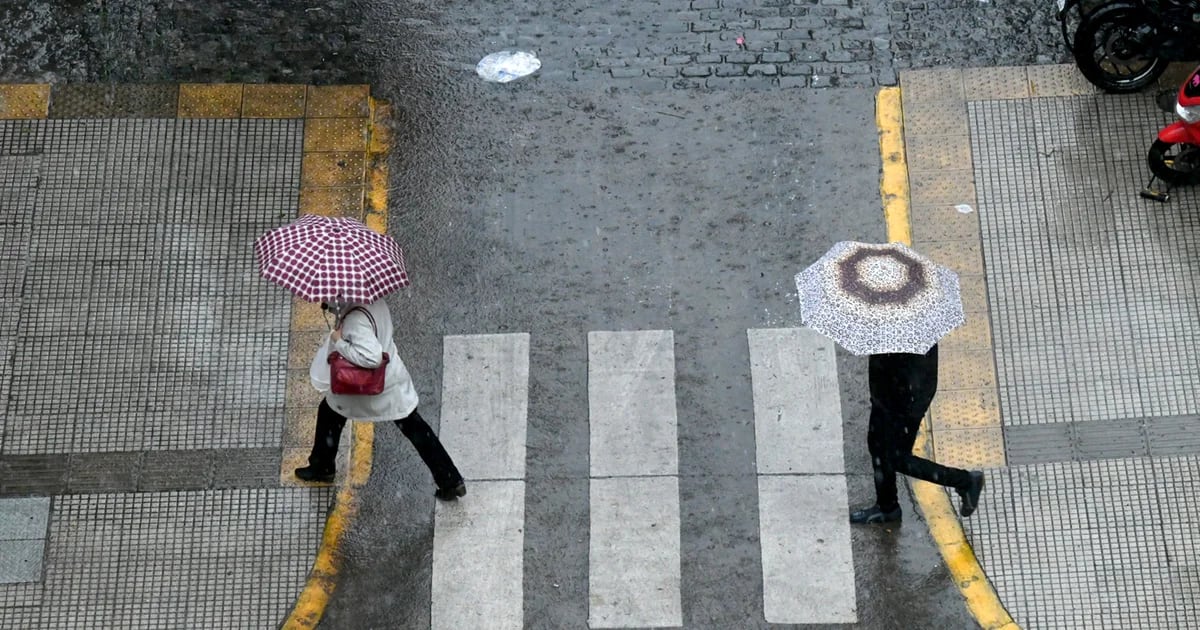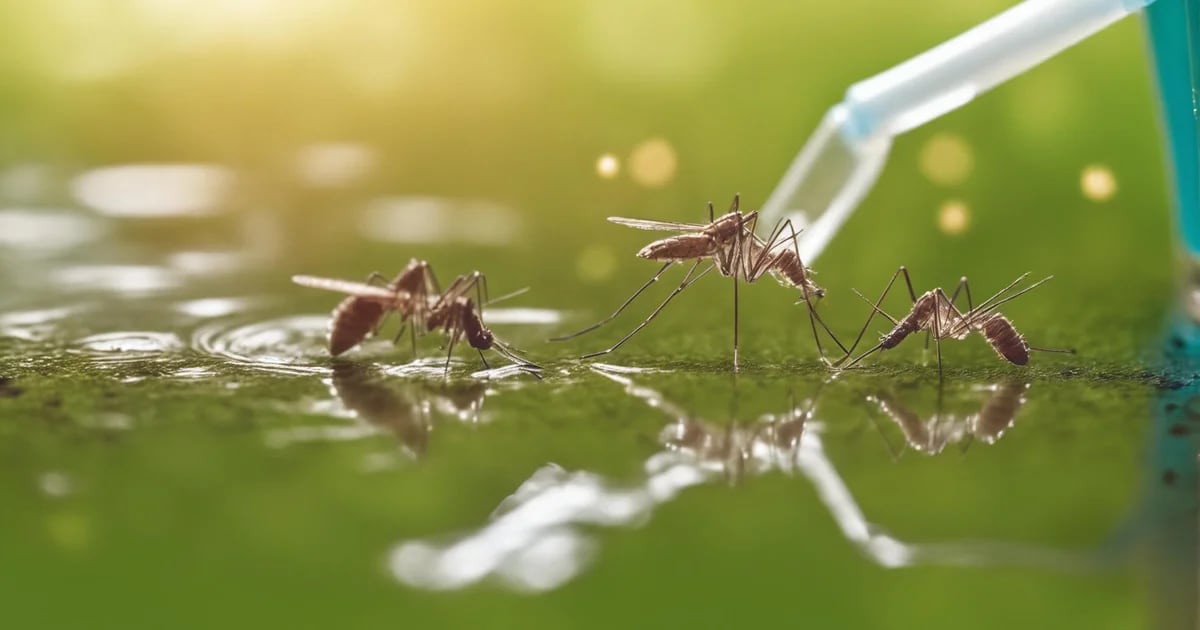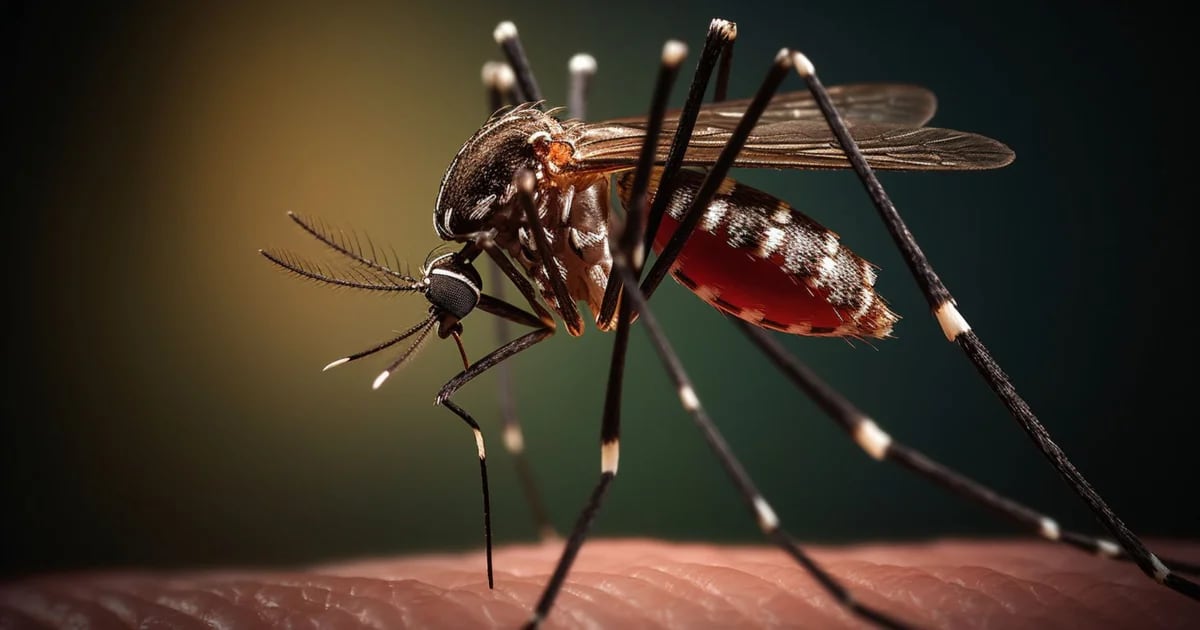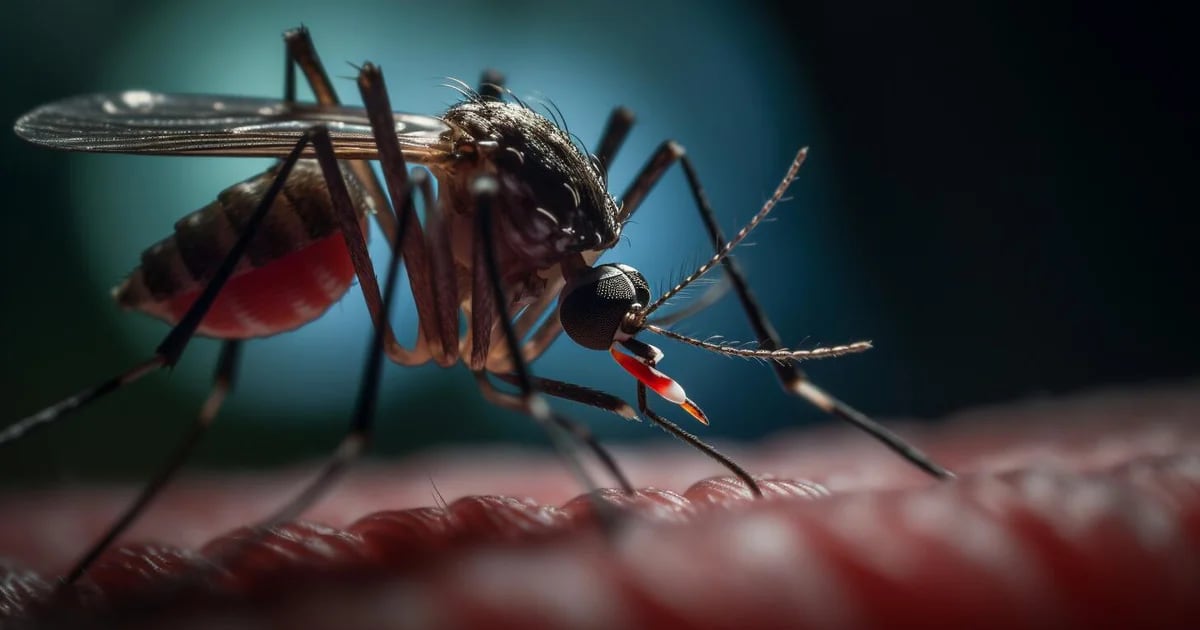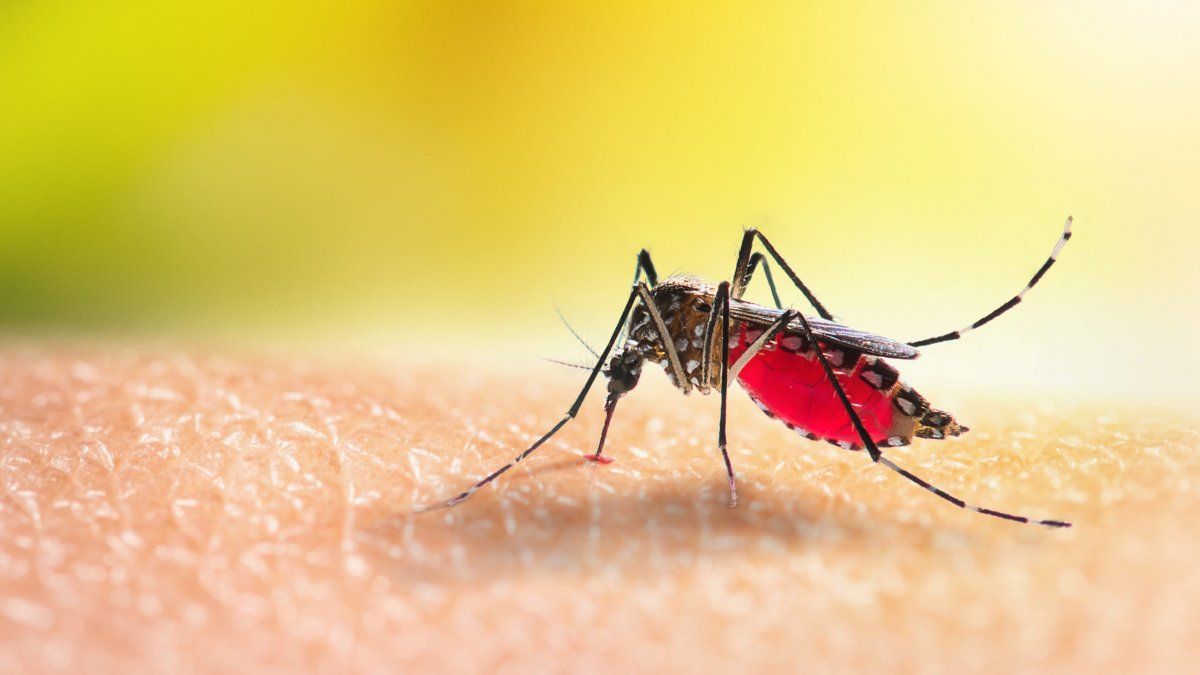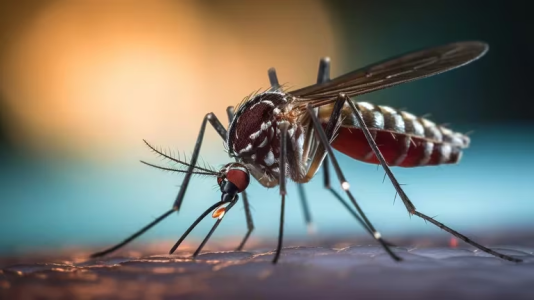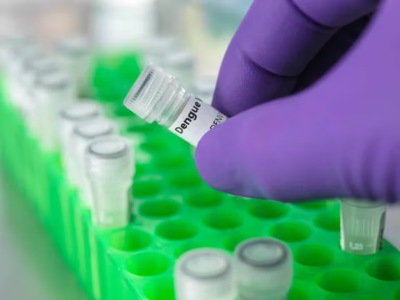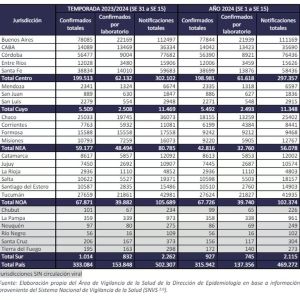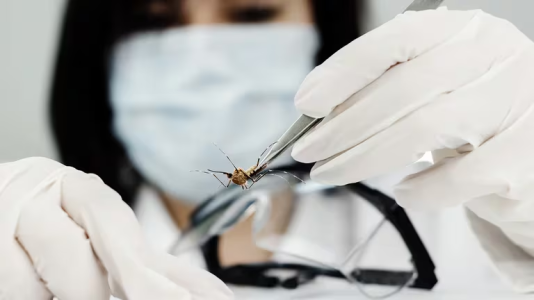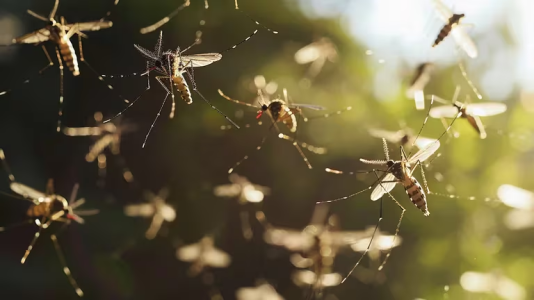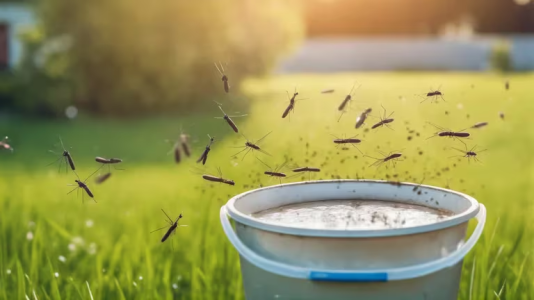Historic dengue outbreak in Argentina: there are already 238 deaths and there were more than 333 thousand cases
View attachment 4689
Source:
Así lo informó el Ministerio de Salud en el último Boletín Epidemiológico. Cuáles son las regiones más afectadas y cómo incide el clima en la transmisión de esta enfermedad viral

www.infobae.com
April 22, 2024
This was reported by the Ministry of Health in the latest Epidemiological Bulletin. Which are the most affected regions and how does the climate affect the transmission of this viral disease?
View attachment 4690
This season's dengue outbreak exceeded that of last year (Illustrative image Infobae)
The
Ministry of Health released the latest data on the
dengue outbreak in Argentina. In accumulated terms , 333,084 cases of dengue have been reported from week 31 of 2023 -end of July and beginning of August- to week 15 of 2024 (mid-April) (91% indigenous, 7% under investigation and 2% imported). , of which 315,942 correspond to 2024″, they reported in the Epidemiological Bulletin.
“The accumulated incidence so far for the season is 708 cases per hundred thousand inhabitants. In the same period, 762 cases were classified as severe dengue (0.2%) and
238 deceased cases were recorded (fatality to date 0.071%)", they detailed about the viral disease transmitted by the
Aedes aegypti mosquito.
Secondly, they stated that although "the cases of recent weeks must be taken with caution because they can be modified according to the successive integration of information by the notifiers
, a gradual national trend of decreasing cases is observed since last week. 13 ″.
In the analysis of the dengue epidemic curve at the country level, the peak so far is recorded in week 12, with 47,092 cases, from which a decrease in the number of weekly cases is identified for 2 consecutive weeks (the percentage variation between week 14 and week 12 is 21%).
View attachment 4691
Experts point out that the decrease in temperature could be reflected in cases within approximately two weeks (Getty Images)
This trend in the curve for the entire country is fundamentally driven by the behavior observed in the Central region, which has a curve similar in format to that of the entire country and contributes the greatest number of cases, while in the other regions the behavior is different.
"In terms of the impact by region, the Central region so far concentrates 59.9%, followed by the NOA and NEA regions, which contribute 20.4% and 17.8% of the cases respectively, while the Cuyo and South regions contribute less than 2%. Regarding the accumulated incidence, the highest corresponds to the NEA region with 1,362 cases per 100,000 inhabitants, followed by the NOA region with 1,144, Center with 659, Cuyo with 161 and South with 32," they specified.
View attachment 4692
Data from the Epidemiological Bulletin on dengue
In the Bulletin, the Health area made a comparison of the current season with previous ones, and observed “greater magnitude than previous epidemic seasons: the cases accumulated up to week 15 represent 3.17 times more than what was registered in the same period from the previous season -2022/2023- and 9.1 times more than what was recorded in the same period of 2019/2020; persistent viral circulation throughout the period in the NEA region and earlier seasonal increase compared to previous epidemic years; mHigher number of cases per week: with the information available to date, since week 8 of 2024 the number of cases has exceeded the peak recorded in week 13 of 2023 when 18,211 cases had been recorded.
Regarding the serotypes, they elaborated: “In this season, 3 serotypes have been identified so far circulating in the country, with a predominance of DEN-2, followed by DEN-1 (between the two they account for more than 99.9% of the serotypes). cases) and a few cases of DEN-3″.
Dengue surveillance is carried out seasonally, from epidemiological week 31 of one year to week 30 of the next, coinciding with the peak of virus activity, which generally occurs during the summer months. Although there are still several weeks left to complete this year's measurement, the threshold of record cases registered in the previous season, which stood at just over 130 thousand, has been widely exceeded.
View attachment 4693
According to experts, during the winter months dengue cases should decrease (Illustrative Image Infobae)
The incidence of climate in cases of dengue
As can be seen, the current season is a record with respect to dengue cases. However, with the arrival of autumn and colder days, one of the points that are under analysis is the
impact of the climate -precisely
the lowest temperatures recorded recently- on the
reduction of the population of transmitting mosquitoes , which could contribute to the
reduction of dengue infections.
In that tone, in a recent
note to Infobae, infectologist
Tomás Orduna, former head of the Tropical Medicine and Travel Medicine Service at the FJ Muñiz Infectious Hospital and member of the scientific committee of the
Mundo Sano Foundation, explained: “They are beginning to mix moments of ease for transmission due to temperatures or places where there is still significant mosquito activity and others where this activity decreases with the arrival and installation of autumn, which changes the eco-epidemiological conditions. This reduces the number of mosquitoes and therefore reduces the possibility of acquiring the dengue virus.”
View attachment 4694
According to experts, during the winter months dengue cases should decrease (Illustrative Image Infobae)
According to Orduna,
there is usually “a cessation of dengue activity and transmission between the end of May and the beginning of June , and we are moving slowly - not quickly and rampantly - down the curve. This
has to do with meteorological issues . When temperatures decrease, they generate adverse conditions for the reproduction of the mosquito vector. What remains now is to wait to see if this downward curve continues to manifest itself in this way. The big question is whether this year the same thing will be reproduced as in 2023, with regions of the country such as the northeast in which during the 12 months there was transmission of dengue, creating an ease for the initiation of a new epidemic like the one we are experiencing. ”.
Meanwhile,
Adrián Díaz ,
CONICET researcher at the Institute of Biological and Technological Research (IIByT, CONICET-UNC) and adjunct professor at the “Dr. JM Vanella” from the National University of Córdoba, stated in dialogue with
Infobae : “
The decrease in temperature could be reflected in the cases within approximately two weeks .” Because? Because it impacts mosquito transmission; in the extrinsic incubation period. There are two extrinsic incubation periods: the incubation period of the virus in people and that of the virus in the mosquito. So, with this cold, it will decrease and a lethargy will occur in the mosquito's activity. “Then the entire transmission slows down because the mosquito feeds less and is less active.”
According to Díaz,
with the cold, “the mosquito's reproduction cycle is also shorter , so the abundance of the mosquito will decrease or, at least, the growth rate of the populations. On the other hand, the extrinsic incubation period of the virus in the mosquito increases. So, that causes cases to be transmitted or occur at a lower rate. Thus, on the one hand we have a decrease in cases because transmission is slowed down by the longer extrinsic incubation period and because there are not as many contacts of the infected mosquito with humans.”
View attachment 4695
It is essential to eliminate possible mosquito breeding sites (Illustrative image Infobae)
How to prevent dengue?
Regarding the measures to consider, the elimination of mosquito breeding sites is carried out in homes and common spaces. To do this, it is necessary to frequently throw away, turn over or sanitize the containers that accumulate water, even if they are small, both inside and outside the home.
Also, cover or cover large containers such as drums or elevated tanks with mosquito netting and clean gutters. It is important to brush the waterers and change the water daily. Swimming pools should be kept chlorinated and covered when not in use. The participation of every community and perseverance in these tasks is essential. In areas where there is active dengue transmission, it is recommended to eliminate adult mosquitoes using insecticides to stop and stop transmission.
This action requires trained personnel so that the actions are effective and at the same time prevent the development of mosquito resistance to the insecticide. In addition, the use of repellents is recommended, according to the manufacturers' instructions, as a permanent individual protection measure while the cases continue.


